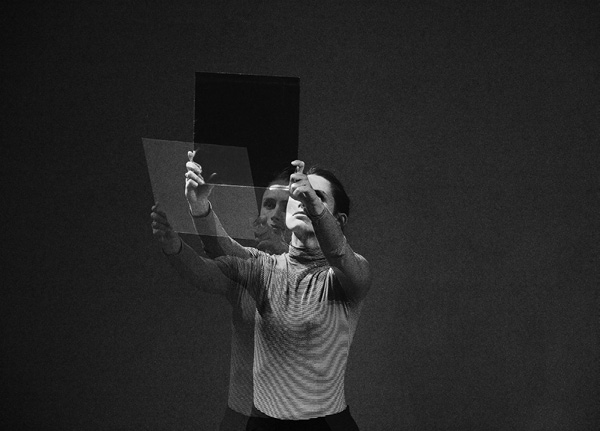
/VANITAS/
first performed on November 3, 2016
Dixon Place, New York, NY
performed once in 2016
ZACHARY SMALL / NAOMI BOYCE / CHET KING
Josiah Grimm, Inga Aleknaviciute, Gabby Beans, Theo Maltz, Shannon O’Brien
New York, NY / Berlin, Germany
815408841z815408841s815408841m815408841a815408841l815408841l81540884198154088413815408841@815408841g815408841m815408841a815408841i815408841l815408841.815408841c815408841o815408841m
naomifboyce.wixsite.com/vanitas
/VANITAS/
ZACHARY SMALL / NAOMI BOYCE / CHET KING
“/VANITAS/” is a fantasia on the fragile infrastructure that underlies our digital age, the economy that pays for it, and the crippling normalization of life that we experience under the auspices of globalization.
‘Vanitas’ comes from the Latin, meaning superficiality and emptiness. We define it as the emotional vacancy of repeatable, predictable forms; vanitas is the emptied, utilitarian expectation you feel looking at the modern city’s horizon; the power of architecture quietly choreographing our lives.
We want to destroy ‘vanitas.’
Like witnessing the demolition of a building, the rupturing of ‘vanitas’ produces a surge of emotions: adrenaline, panic, anger, hilarity, and, most importantly, absurdity. In that absurdity, as Albert Camus defines it, we find self-consciousness. Our goal for “/VANITAS/” at Dixon Place was to render digital life with clarity: to expose our audience to the stunning fragility and physicality of the internet by interrogating its connections to financial mechanisms and the architecture of urban planning. As a systematic critique, “/VANITAS/” ultimately pointed to the dangerous political vacuums created when financial and urbanization projects proliferate without citizens’ input.
As theatremakers, we also wanted to unpack digital space vis-à-vis theatrical space without resorting to clichés. “/VANITAS/” was a chance to envision a 21st-century theatre that looked like the conditions it was made under: the warm glow of computer screens as comfort; the cyclical melodrama of stock indexes as Greek tragedy; the War on Terror as a war on metaphors. We wanted to go where theater often avoids going—into technology and not around it. These concepts calcified into our performance at Dixon Place by connecting the personal with the architectural. The bridge between these worlds was the play’s text. With an undelineated script written like a poetic composition, language had more independence and flow. The actors played in opposition to the text, anchoring its dense themes with honest comedy. With a suite of improvised multimedia intervening their work, the actors embodied ‘vanitas,’ grappling with the fierce interplay between stories and technology.
From “/VANITAS/” we will remember moments of clarity countered by conspiracy: bodies mediated through reflective and translucent mirrors. Our digital highway collapsed. Sharks biting Google’s undersea cables. Information spilling into the ocean and becoming sentient. That sentience rising from the Mariana Trench like an ascendant Android Aphrodite. A silence. A reckoning. Who knows? But for now, what? What now?